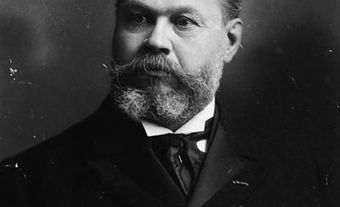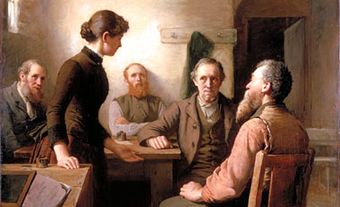Public School
Public school refers to provincially controlled, tax-supported schools which are normally available to school-age children who live within a school district. Public schools, which in most provinces also include schools attended by students of the Roman Catholic faith, are funded by provincial and local taxes (although federal funds, transferred through provincial governments, may be directed into public schools in some instances for some programs, such as TECHNICAL EDUCATION). Provincial political authority alone determines school administration, general policy, curriculum, textbooks and standards.
Each province also establishes the qualifications required for teachers in that province and each province also authorizes those who teach and administer the schools. (Although local SCHOOL BOARDS construct and manage public schools, they do so within powers delegated by provincial governments.) Most provinces also co-operate with post-secondary institutions, usually universities and some community colleges, to educate individuals desiring to become teachers in the province.
SEPARATE SCHOOLS and tax-supported denominational schools are special kinds of public schools for students of either Roman Catholic or Protestant faiths, although usually of the former. In Alberta and Saskatchewan, it is the predominant religious affiliation within an area which determines whether a school district is deemed Protestant public or a Roman Catholic public, although in some areas both a Protestant and a Separate district may exist in the same geographical location. In most provinces and territories, children are required by law to attend school, either public or provincially sanctioned private school, for a minimum of 10 years from the age of 6.
See also CHARTER SCHOOLS: PRIVATE SCHOOLS.

 Share on Facebook
Share on Facebook Share on X
Share on X Share by Email
Share by Email Share on Google Classroom
Share on Google Classroom


